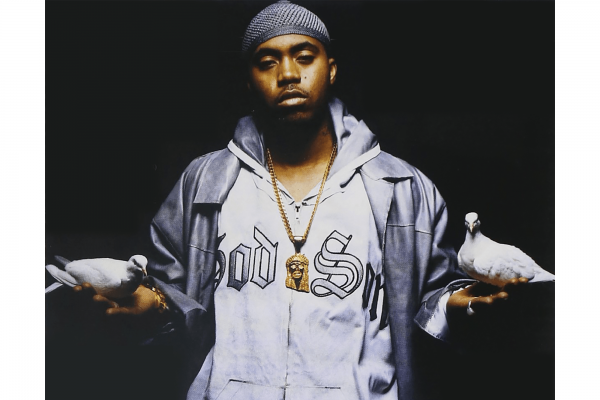IT'S ALMOST DECEMBER, and in a few weeks we may gather with our families (potentially via Zoom) to sing “Away in a Manger” and “Hark! The Herald Angels Sing.”
Each of these songs depicts baby Jesus in a different way, from a poor, defenseless child to a newborn king. Each contributes to our faith in a different way. That tiny baby reminds us of Jesus’ humanity and his solidarity with the poor, while the incarnated Lord reminds us of God’s splendor and glory.
From these hymns to the latest Hillsong chorus, most songs about Jesus have been written by Christians for their fellow believers. Over the past 50 years, however, this has changed. Songs about Jesus no longer show up just in church, but also in discos, honky-tonks, blues bars, and strip clubs. Over the past 50 years, Jesus has appeared in hundreds of songs in every secular genre. These artists explore in their own unique ways the question that Jesus asked his disciples: “And who do you say that I am?”
Unsurprisingly, their answers are often provocative and unorthodox. Some songs reimagine Jesus as Black, Korean, female, or gay. Some depict him as a soldier, a presidential candidate, a cowboy, or a football player. Others compare him to John F. Kennedy, Martin Luther King Jr., Hank Williams Jr., and even Hitler.
Though most of these will never appear in our hymnals, that doesn’t mean they aren’t important to us as Christians. Written by artists unafraid of excommunication or execution, these songs often speak with powerful prophetic voices that we need to hear. Like Isaiah, Jeremiah, and Jesus, they carry messages that have crucial importance for contemporary Christians.
The first is that we don’t have a trademark on the identity and meaning of Jesus. In fact, the variety of ways that Jesus appears in these songs reminds us that his meaning has always been complex, highly contested, and inseparable from the structures of power that have dominated the Christian tradition. Because these songs give voice to individuals and communities that have rarely been invited to the theological table, there is no escaping their political ramifications. In songs such as The Game’s “Jesus Piece,” Lil B’s “Look Like Jesus,” and Nas’ “The Cross,” rappers identify themselves with Jesus in order to claim his power. They challenge the values of humility and meekness given to them by an oppressive society. At the same time they reclaim Jesus’ role (and theirs) as an outlaw: a preacher, revolutionary, and martyr who died for the truth, ultimately triumphing over the “haters.”
In country songs such as James Otto’s “Soldiers and Jesus,” Clay Walker’s “Jesus Was a Country Boy,” Johnny Cash’s “The Greatest Cowboy of Them All,” and even Carrie Underwood’s crossover smash “Jesus, Take the Wheel,” Jesus embodies the values of rural, white, politically and socially conservative evangelicalism. He is a humble, down-home boy who loves his mama, his church, and his country. In punk and metal songs such as Bad Religion’s “American Jesus,” Jello Biafra’s “Jesus Was a Terrorist,” and Metallica’s “Leper Messiah,” Jesus appears as a foil for the values of independent thinking and personal authenticity that are central to both genres. He is either a false preacher, a misguided lunatic, or a misunderstood teacher who has tragically inspired millions of weak-minded followers.
All of us can recognize ourselves in these songs, and it’s sometimes discomfiting. Who among us has not thought that our Jesus is the real Jesus, or even the right Jesus? These songs keep us from the dangerous temptation to re-create Jesus in our own image.
These songs also speak to us prophetically by keeping us accountable. During the greatest period of secularization in our country’s history, they reflect back to us the Jesus that we Christians have shown others. And like the prophets of the Hebrew Bible, they fearlessly compare the words we purport to live by with the world we have created.
The results are not pretty. Song after song calls out Christians for our sins: a world of violence, death, greed, racism, jingoism, and environmental catastrophe. Songs such as Johnny Cash’s “Jesus Was a Carpenter,” Ben Folds’ “Jesusland,” Ray Stevens’ “Would Jesus Wear a Rolex,” Jordy Searcy’s “Explaining Jesus,” and Green Day’s “East Jesus Nowhere” represent the work of disparate artists in a variety of genres who are unafraid to tell Christians what we need to hear.
Among these sins is the one that secular artists—and the prophets themselves—have considered especially heinous: hypocrisy. Ironically, however, this is the charge that reminds us of Jesus’ enduring truth. Prophetic power comes from speaking the truth, and by convicting Christians of hypocrisy, secular artists actually bear witness to the Jesus of love, peace, and justice whom we Christians wish we could better serve. Despite the sins of his followers, then, these secular artists have still encountered that Jesus. This is an extraordinary example of “common grace” and another way to conceptualize our claim that Jesus is the Living Word.
As we make resolutions for the new year, let’s pray that our Christian witness will reveal to others the Jesus we claim to follow. But if it doesn’t, we can be sure we will hear about it.

Got something to say about what you're reading? We value your feedback!






